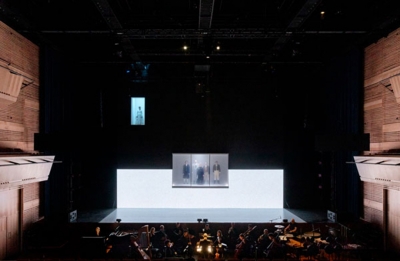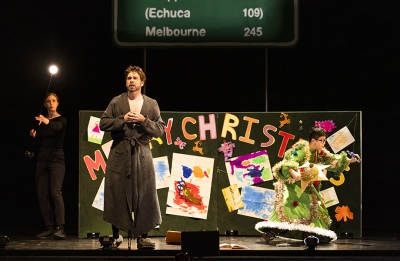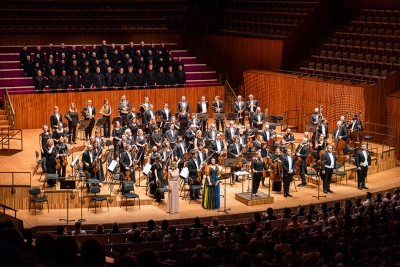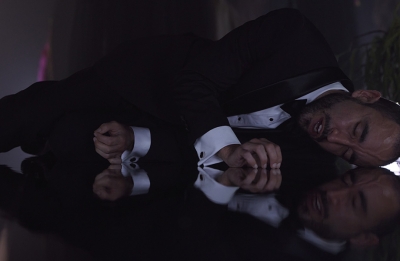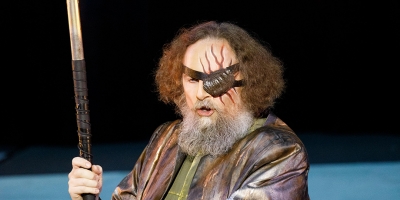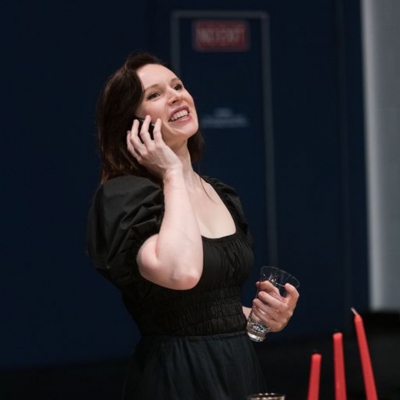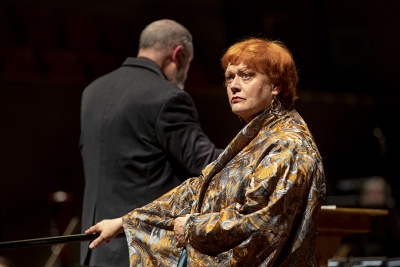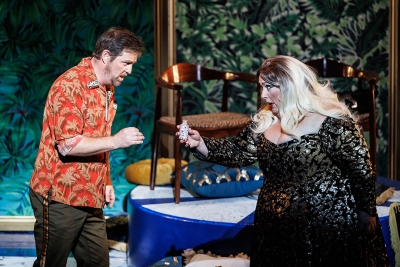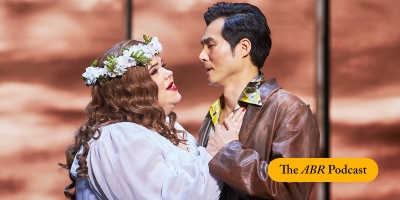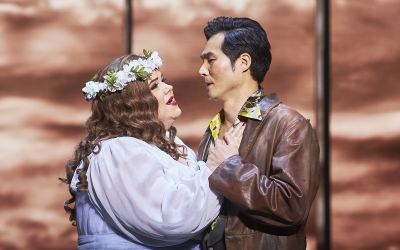Opera
Picture the scene …
A space. Empty. A fall of white ash which covers all surfaces, enveloping in a fine whiteness. A party of futuristic explorers trudge through the frozen steppes. They are in the colours of artificial, twenty-first century Antarctic wear – bright red, yellows oranges. they come across a figure, buried in the whiteness, near to death, frozen. It is a girl, dressed in nineteenth-century clothes – sepias, browns, deep greens. They warm her, wrap her in insulative blankets. She begins to stammer out her story, a fantastic tale …
... (read more)Understandably, the focal point of musical interest in Sydney in recent months has been Bennelong Point, more specifically the newly revamped Concert Hall at the Opera House. Central here has been the Sydney Symphony Orchestra under the new leadership of Simone Young, offering a series of wide-ranging and exhilarating concerts. But there has been other music making. Sydney’s indefatigable Sydney Chamber Opera has not been idle, and Friday saw the première of Awakening Shadow, an intriguing new/old work by Australian expatriate composer, Luke Styles, It comprises a melding of original music by Styles that enfolds the five Canticles of Benjamin Britten (1913–76).
... (read more)The past few weeks in Melbourne have seen a series of extraordinary musical events that collectively represent the ultimate triumph of the creative spirit over the forces of pestilence – something that applies equally to audiences as well as performers. There is certainly, hanging in the air, a palpable spirit of communion and fulfilled expectations from our re-emergence from the stygian isolation of Covid lockdown into the iridescent aura that only live performances can achieve. In Wagnerian terms, we are all Brünnhildes, reawakening from lengthy slumber to joyfully hail the sunlight. As it was – in life and in art – at Sunday’s magnificent performance of Siegfried.
... (read more)Opera Queensland’s third mainstage production of the year, presented in partnership with Brisbane Festival and in association with Fluxus, is a double bill of two one-woman operas where a single phone call changes the course of each character’s life. First came Francis Poulenc’s The Human Voice, followed by the world première of The Call.
... (read more)There are not too many parallels to be drawn between the House of Atreus and the House of Windsor, especially in these mournful times. But I could not help noticing one (admittedly tenuous) connection of memory and circumstance triggered by Victorian Opera’s powerful, almost magisterial one-off performance of Elektra and, later on at home, watching the procession of the Queen’s coffin down the Mall, from Buckingham Palace to Westminster Hall.
... (read more)Few opera composers were more prolific than Gaetano Donizetti, and 1833 proved to be no exception in his relatively short career, with four separate premières in as many cities, culminating in Lucrezia Borgia, first heard at La Scala on 26 December. That season ran for thirty-three performances. The opera went on to become a popular vehicle for prima donnas (some nearing the end of their careers). Melbourne Opera’s reliably good program informs us that Lucrezia had its Australian première at Melbourne’s Theatre Royal in 1855 and remained popular for forty years, becoming Donizetti’s most performed opera in Victoria after Lucia di Lammermoor.
... (read more)Based on Antonio Garcia Gutierrez’s El Trovador, a romantic melodrama set against the backdrop of a fifteenth-century Spanish civil war, Giuseppe Verdi’s Il Trovatore has been described as the ‘apotheosis of the bel canto opera, with its demands for vocal beauty, agility and range’. Yet in what is also his darkest and most death-haunted work, Verdi invests the brightness and vocal embellishments of bel canto with greater dramatic tension ...
... (read more)Whenever you hear a good performance of any one of at least half a dozen operas by Giuseppe Verdi, it’s tempting to think: this surely he can never have surpassed. Il Trovatore, from his fecund middle phase, is one such opera. But then one recalls La Traviata and Don Carlo and Otello – on the list goes – and simply marvels at the variety and richness of his oeuvre.
... (read more)

